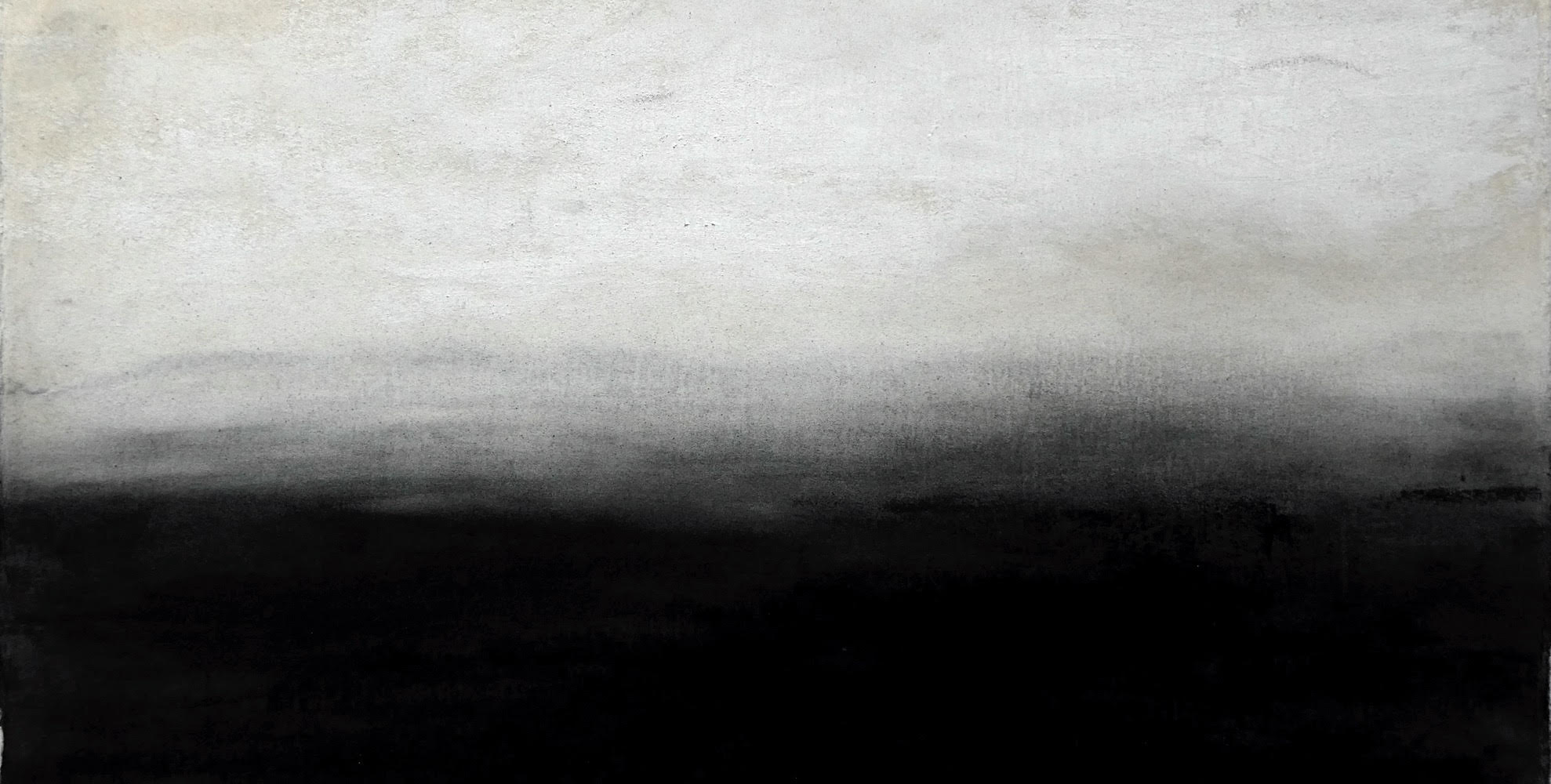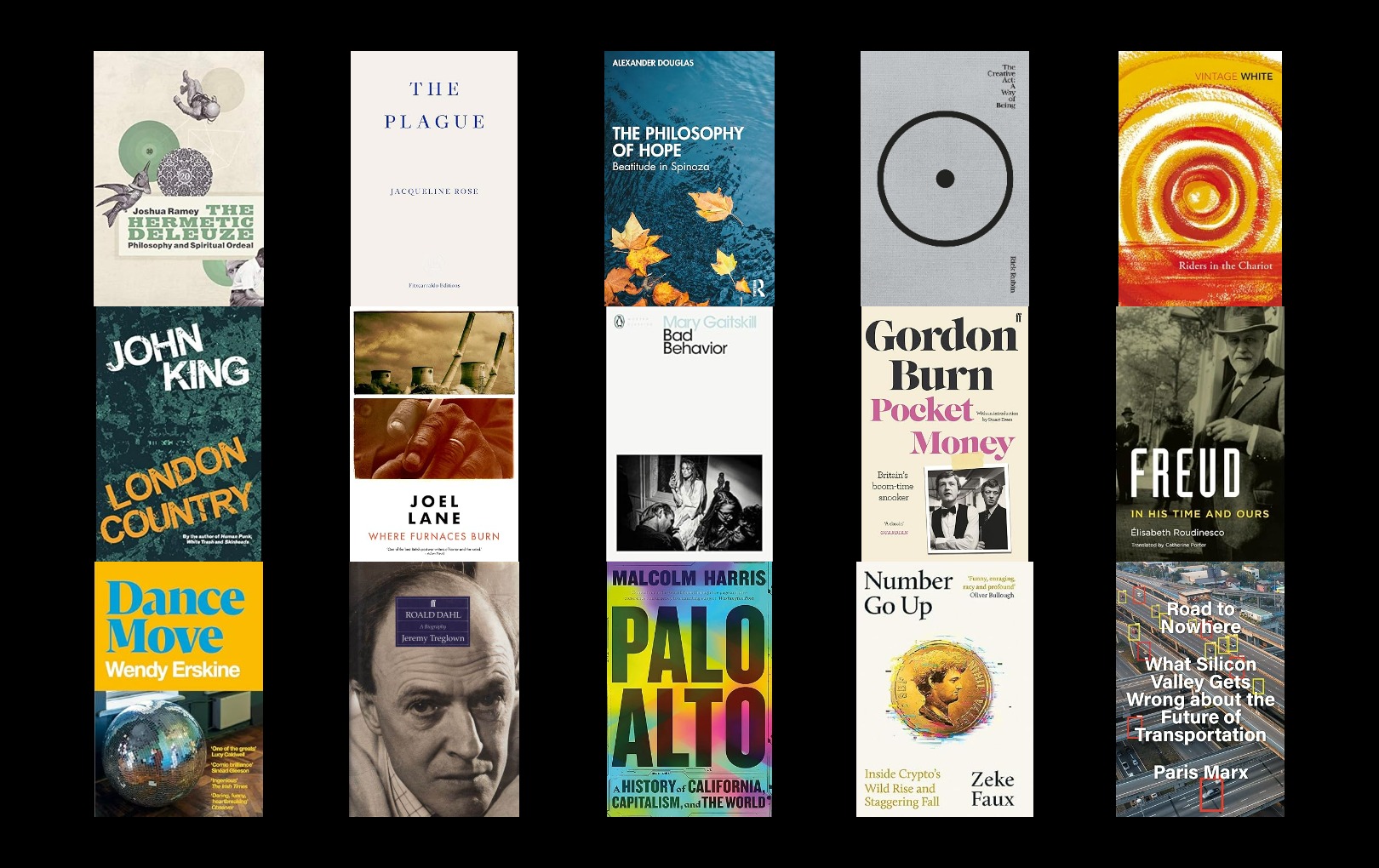
Brad Evans: I Know I Will Never Write a Better Book
If the measure of writing is to get as close as we can to the truth of existence, I know I will never write a
Last week I had the privilege of speaking with Richard Gilman-Opalsky about his new book Specters of Revolt. Here is a 12-minute excerpt of our conversation and the transcript is below. –John Tintera
Richard Gilman-Opalsky on Specters of Revolt [transcript]
I really want to turn our understanding of revolt upside down. I want to invert it, to turn it upside down. Rather than looking upon it as a lowly emotional outburst, I want us to see it as, in some ways, the high point for politics, for our ethical commitment to others on earth.
And within that, there is also a kind of historical concern that my book takes up and that is the idea of the revolt as not being over when it’s done. This gets to the whole title of the book Specters of Revolt and its meaning.
This is why I wrote the book within the context of a hauntology—being haunted. Societies are haunted by revolts because often times something happens—a revolt, an uprising takes place over a weekend or it goes on for two weeks—maybe if it’s a very intense thing it can go for three or four—and then it’s over and people say, “Ah, it’s over but nothing happened.”
I think this is a fundamentally flawed historical understanding of each individual revolt. A revolt is always taking up the unfinished business of previous uprisings. It’s never really over. Once we stop seeing it happen it doesn’t mean it’s done. It’s only finished when the grievances it reacts against are thoroughly resolved – when the conditions that gave rise to it are transformed.
That’s why I look at these more recent revolts within the US as continuations of a long history of revolts that go all the way back to the slave revolts. In fact, in the introduction of the book, I talk about the famous slave revolt of Spartacus in gladiatorial times.
When we don’t have a revolt, we always know, and I believe people in positions of power know full well…there’re a couple of examples in the book that I use to illustrate this…that until the society really does transform and address the conditions that give rise to revolt, times in between revolt are really “ante-revolt” – they’re times before the next one.
We’ve started to see a new wave of black revolt, within the US, in response to police brutality, police killings of unarmed black men across the country. We saw uprisings in Baltimore, in Charlotte, in Ferguson among other places. The book is really about trying to treat these revolts with the dignity they demand and, I think, deserve. And trying to take seriously that, contrary to the typical caricature of revolt as irrational and violent, that they’re actually full of exceedingly thoughtful content. And that they’re more a reaction against violence and various forms of violence than they are themselves violent.
Quite a long time ago, I had taken up, for a book that was published in 2008, the example of the Mexican Zapatistas who made a revolt in Mexico on the inauguration day of NAFTA. This was in 1994, early into the post-Cold War period, when people were saying that the old revolutionary politics is dead and that it was time for a tombstone to be placed above everything under the heading revolution, transformation, criticism of capital and capitalism, and all the rest. Because the old Soviet Union and the communist projects of the 20th century were now dead and buried.
And then come, out of the mountains of Chiapas, people with virtually no power, out of the mountains, and that indigenous population threw into question the neo-liberalism of the early ’90s.
Really, ever since that moment, I have been interested in what we might call revolutionary alternatives to revolution. Not the old 19th-century idea of revolution where people storm the Bastille, take the state, and govern it from above, but different ways of challenging the existing situation from below.
In the years after that, I had thought, written, researched, and taught about social movements and all kinds of challenges that were coming from everyday people. What usually was the case was that students and readers saw this as a highly impractical theoretical debate because we didn’t live in a world of revolution. We lived in a world of acceptance, of acquiescence, of conventional politics, and failure.
So when 2008 came around and we started to see uprisings throughout Greece, Europe, the Arab Spring, Occupy Wall Street, and in the inner cities throughout the US, finally, at long last, it was much easier to say, “You see. This is not a pure theory trapped up in text or philosophy. This is the actual practice of people everywhere. Whenever they can do it, whenever the conditions are there they do rise up and always have.”
Events in the world have forced me to take up the question anew. For myself and for a whole generation of people, there was a big question in the early ‘90s. And that question was, is there anything else; is there nothing but global capitalism of one form or another, is there anything else? Is there any other way of thinking about and against this newly consolidated power of capital?
In the ‘80s, really throughout the whole Cold War period, the idea that dominated was, there’re two systems. That was the Cold War ideology. There’s the system of capitalism versus the communist system. Of course, we knew for a long time — across the disciplines in the social sciences and humanities — that the Cold War ideology was a fake. It was a fraud; it was a lie.
Many of the philosophers I read, many of the sources I used, demonstrated that that period was a period not between capitalism and communism but; rather a period of contest between two forms of capitalism; state capitalism, bureaucratic and administrative capitalism, on the one hand, versus the free market deregulating capitalism of the US. And that was the capitalism that won at the end of the 1980s and the beginning of the 1990s.
In that period of the early 1990s, people were generally convinced that now there was no alternative, not even an alternative within capitalism of one form against another. It was just the victory of neo-liberal free market global capitalism and nothing else.
The indigenous rebellion in Mexico–the revolt of the Zapatistas, which in many ways was a failure but in other ways was a success–showed those of us who learn from revolts… (that’s the kind of scholar I always have been, one who didn’t want to teach revolt but rather to be a student of it and learn from it) the Zapatistas taught us that there were still new ways of thinking against the situation.
As I said, some of it was a failure but some of it was a success. What it did was spark what I call in the book, the “insurrectionary imagination.” It didn’t directly and immediately solve problems, but what the Zapatistas did do was they unjammed the insurrectionary imagination, which is the title of the third chapter of Specters of Revolt.
They got us thinking in a very big way, open and creative, about the possibility for challenging the power of capital. The interest in human psychology, in social psychology, that the health of the human person in our society, for me, comes out of a really long tradition of what is sometimes called critical theory—thinkers like Erich Fromm, Herbert Marcuse, Theodor Adorno, and other sociologists and theorists.
What they tried to do is understand the political situation and social situation—the reasons why we accept the unacceptable; the reasons why we tolerate the intolerable. Not from the old merely political and economic point of view but also from the point of view of human psychology, and the position of the person within the society, and why it is that we think the way we think about ourselves and the world.
Why it is that we can call certain things totally unacceptable—for example, growing inequality, brutal exclusions, mass incarcerations, incredible levels of violence associated with poverty and racism. Why we can say that those things, on their face, that they’re totally unacceptable and then continue to accept them as if they weren’t.
Psychology, when fused with political theory and the social sciences more broadly can help us to explain some of the human conditions, I think, on levels that earlier political scientists and theorists, either neglected or often times didn’t have the tools to undertake.

If the measure of writing is to get as close as we can to the truth of existence, I know I will never write a

To accompany his latest piece with Tariq Goddard in The Quietus on True Detective Season 4 and the legacy of In The Dust of This Planet, Eugene

As another turbulent year draws to a close, the Repeater team put forward their favourite reads for the festive season. Publisher, Editor, and Author Tariq

If the measure of writing is to get as close as we can to the truth of existence, I know I will never write a

To accompany his latest piece with Tariq Goddard in The Quietus on True Detective Season 4 and the legacy of In The Dust of This Planet, Eugene

As another turbulent year draws to a close, the Repeater team put forward their favourite reads for the festive season. Publisher, Editor, and Author Tariq
